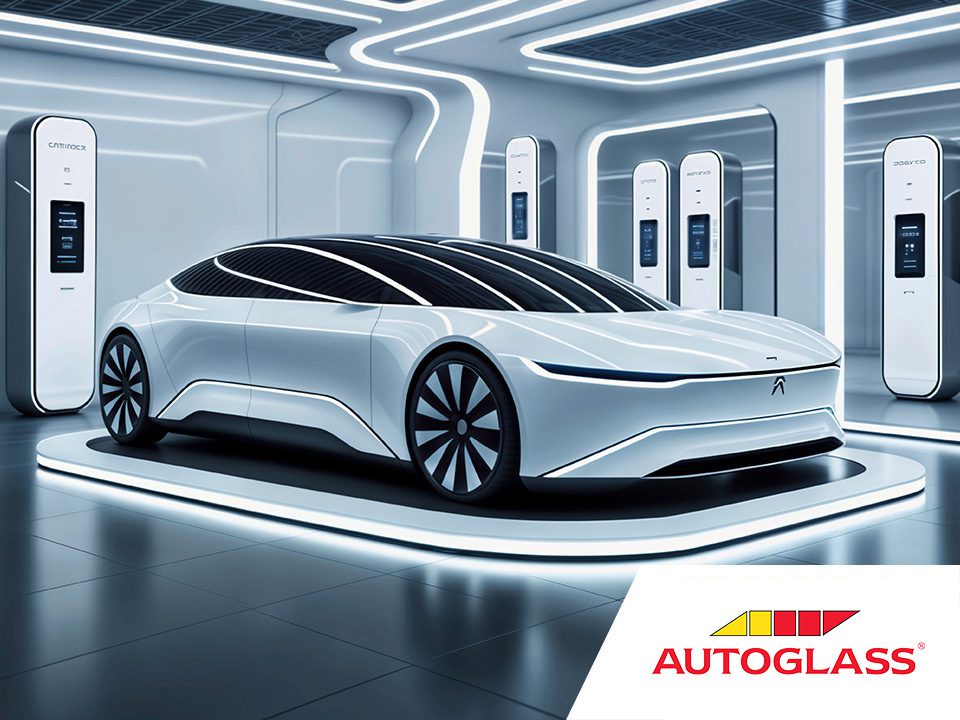
The Latest Innovations in Electric Car Technology You Need to Know About
It is no secret that the technology found in cars is changing all the time, particularly when it comes to Electric Car technology. From breakthroughs in battery technology to advancements in autonomous driving, the landscape of electric vehicles (EVs) is constantly evolving. It can be hard enough to keep on top of what the latest new driving technology is to hit the market, let alone consider what might be coming next.With that in mind, let’s take a moment to delve into some of the latest innovations on the EV scene that are shaping the future of electric cars.
Common Misconceptions About Electric Vehicles >>
Lithium-Sulphur Battery
One of the most promising developments in electric car technology is the emergence of lithium-sulphur batteries. These next-generation batteries offer significantly higher energy densities compared to traditional lithium-ion batteries, promising longer driving ranges and faster charging times.
The key advantage of lithium-sulphur batteries lies in their chemistry. By employing sulphur as the cathode material in place of the more commonly utilised lithium cobalt oxide, these batteries can store more energy per unit of weight than their lithium cobalt forebears. The good news is that this means lighter and more efficient electric vehicles than ever before.
These efficient EVs can put to rest the long standing issue of range anxiety that has plagued broader EV adoption.
The adoption of these new batteries has not been seamless, of course. But automakers are making significant strides in overcoming the challenges associated with lithium-sulphur batteries, such as cycle life and stability. With ongoing advancements in materials science and manufacturing techniques, these batteries are poised to become a key driver of much wider EV adoption in the coming years.
What to consider before buying your First Electric Car >>
Induction Charging
One of the most common complaints associated with EV ownership is having to make sure you plug your car in to charge every night. Well, this concern may soon be a thing of the past thanks to Induction Charging.Induction charging, also known as wireless power transfer, is set to entirely revolutionise the way we Electric Cars are charged by enabling convenient and efficient charging without the need for a physical connection, socket or port.
Induction charging works by transferring power from a charging pad embedded in the ground to a receiver coil installed on the underside of your electric vehicle. This technology eliminates the need for cumbersome charging cables and connectors, making EV charging as effortless as parking your car.
While induction charging is still in its early stages of adoption, it holds tremendous potential
for widespread deployment in homes, carparks and maybe someday even public roads. Of course, a lot depends on if lawmakers and automakers can cooperate in the development and standardisation of induction charging systems in coming years. If they do, and we do indeed see significant investment in public infrastructure that utilises Induction Charging, this could be the biggest breakthrough in EV technology in quite some time.
The Pros and Cons of Owning an Electric Car >>
Sodium-ion Batteries: Revolutionising Energy Storage
Another noteworthy advancement in electric car battery technology is the emergence of sodium-ion batteries. While lithium-ion batteries have long been the standard in EVs, sodium-ion batteries offer a compelling alternative with their potential for lower cost, increased safety, and improved sustainability.
Unlike lithium, sodium is abundant and widely available, making it a cost-effective and environmentally friendly option for energy storage. Additionally, sodium-ion batteries have shown promising performance characteristics, including high energy density and long cycle life, making them well-suited for use in electric vehicles.
Scientists and engineers around the auto industry and beyond are tirelessly working to enhance the performance and scalability of sodium-ion batteries, with the goal of bringing them to commercial viability sooner rather than later.
The potential impact of sodium-ion batteries on the electric car market cannot be overstated. With their ability to lower manufacturing costs, reduce dependence on rare materials, and improve overall sustainability, the adoption of sodium-ion batteries could spell major changes around the car industry.
What to consider before buying a second hand electric car >>
Autonomous Vehicles
Regular readers of the Autoglass® blog will know that the era of autonomous driving is fast approaching and electric vehicles are at the forefront of this revolution. Autonomous electric cars have the potential to reduce traffic congestion,and minimise the environmental impact of transportation by optimising route planning, and reducing energy consumption. While fully autonomous electric cars are still undergoing rigorous testing and regulatory approval, significant progress has been made in recent years and we should expect to see A.I enhanced Autonomous Vehicles on the roads in the coming years.
Vehicle Autonomy Levels 0 – 5 Explained >>
Hydrogen Fuel Cells
Hydrogen fuel cells are yet another promising development in the realm of sustainable transportation. Unlike battery-electric vehicles, which store electricity in onboard batteries, hydrogen fuel cell vehicles generate electricity onboard through the chemical reaction between hydrogen and oxygen, emitting only water vapour as a byproduct rather than environmentally harmful exhaust fumes.
Hydrogen fuel cells offer several advantages over traditional battery-electric vehicles, including faster refuelling times and significantly longer driving ranges. Moreover, hydrogen can be produced from renewable sources such as wind and solar power, offering a carbon-neutral alternative to fossil fuels.
While hydrogen fuel cell technology is still in its infancy compared to battery-electric vehicles, automakers like Toyota, Honda, and Hyundai are investing heavily in its development.
In summation, the latest innovations in electric car technology are reshaping the future of transportation, offering cleaner, more efficient, and more sustainable alternatives to traditional cars. From breakthroughs in battery technology to advancements in autonomous driving and alternative powertrains, the electric car revolution is well underway, promising a greener and more enjoyable driving experience perhaps sooner than you think!
EV, PHEV or EV – what should I go for? >>
For more deep dives on the future of motoring, along with plenty of tips, explainers and guides – check back with the Autoglass® blog again soon.
Book an appointment now
For a quick and easy way to make an appointment book online now.
